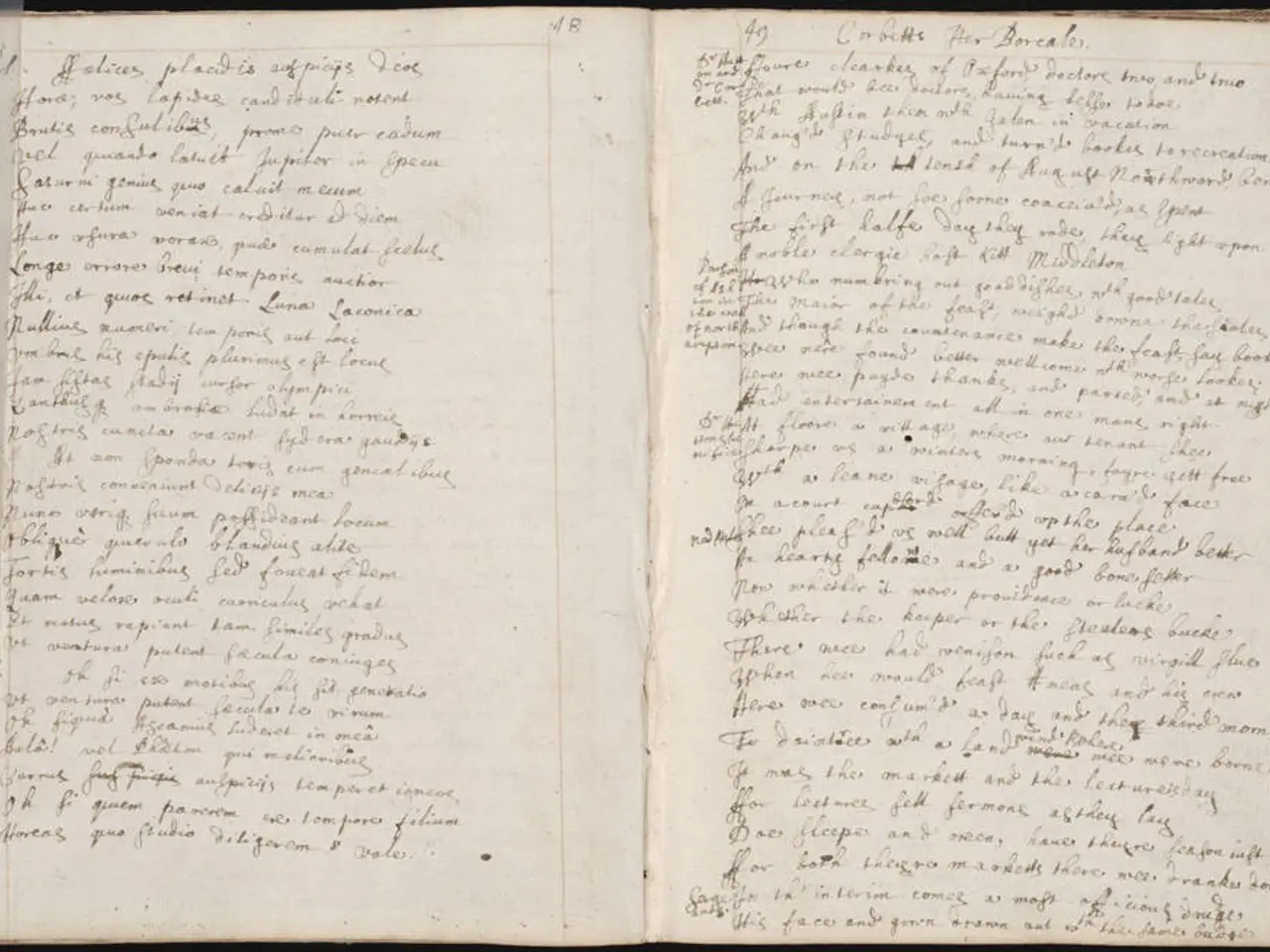Insights Gained from Exploring Foucault's Early Literature
In the realm of academic pursuit, delving into the early works of a prominent scholar can provide valuable insights into their intellectual journey. This is particularly true when it comes to Michel Foucault, a French philosopher, social theorist, and historian of ideas whose ideas have left an indelible mark on various disciplines.
Rafi Lehmann, a student currently enrolled in a class called "Foucault, Power, and Knowledge," is on such a journey. Lehmann is reading Foucault's published writing chronologically, starting from his doctoral dissertation, to gain a deeper understanding of the evolution of his thoughts and ideas.
Foucault's early works, such as "The Archaeology of Knowledge," mark a departure from traditional linear histories and author-centered interpretations. In this seminal work, Foucault develops a methodological approach focusing on discursive formations, discontinuities, and the underlying rules that govern knowledge production. Key concepts such as the “archive” as the system governing what can be remembered and recorded stem from this period.
This archaeological stage is foundational, but it is also experimental. Foucault later extends and modifies it into genealogy, a method that more explicitly connects power and knowledge dynamics. This phase showcases how Foucault initially bridged history, philosophy, and social critique, providing a platform for his later exploration of power relations, discipline, and subjectivity.
Early works like these are not just historical curiosities. They reveal the origins of key concepts and the gradual refinement or transformation of ideas over time, illustrating the process of scholarly growth as a trajectory marked by shifts, expansions, and reorientations rather than fixed doctrines.
Moreover, early writings and interviews annotated by scholars reveal Foucault’s intellectual shifts—such as moving away from essentialist ideas about madness and truth toward understanding madness as socially constructed through cultural divisions. This points to an evolving critique of societal institutions and norms that develops gradually rather than appearing fully formed.
Lehmann finds these early works challenging, yet enlightening. He acknowledges that there is room for error, even for scholars like Foucault. Embracing experimentation is essential for progressing towards stronger arguments, according to Lehmann. Expecting to discover something extraordinary on the first draft undermines the process of development and experimentation.
Professors dedicate time to selecting and refining reading lists for courses. The developing syllabus is filtered through certain ideological and methodological biases. The selected readings often reflect essential sources on a particular subject. In this class, Lehmann is learning to appreciate the value of these early works, which document the process of scholarly growth and experimentation.
In conclusion, early works contribute significantly to our understanding of intellectual evolution. They exhibit nascent theoretical frameworks and methodological tools, reveal openness to revision, expansion, and redirection, document the interplay between philosophical tradition and empirical concerns, demonstrate how scholars negotiate and respond to social, cultural, and political contexts, and make visible the experimental nature of scholarly inquiry before mature theories crystallize. For those embarking on the journey of intellectual discovery, delving into the early works of a scholar like Foucault can provide a fascinating and enlightening experience.
[1] Foucault, M. (1969). The Archaeology of Knowledge and the Discourse on Language. Routledge. [2] Eakin, D. M. (1985). Michel Foucault: The Will to Truth. University of California Press. [3] Foucault, M. (1961). Madness and Civilization: A History of Insanity in the Age of Reason. Routledge. [4] Foucault, M. (1978). Discipline and Punish: The Birth of the Prison. Vintage Books. [5] Rabinow, P. (1984). Foucault: Beyond Structuralism and Hermeneutics. University of California Press.
- Rafi Lehmann's academic writing, as part of his junior paper in the class "Foucault, Power, and Knowledge," revolves around the value of studying early works in education-and-self-development, focusing on Michel Foucault's "The Archaeology of Knowledge" and its impact on his personal-growth as a scholar.
- The exploration of early works, such as Foucault's "The Archaeology of Knowledge," in the realm of academic writing fosters learning about intellectual evolution, personal-growth, and the experimental nature of scholarly inquiry, providing invaluable insights on the development of mature theories.




